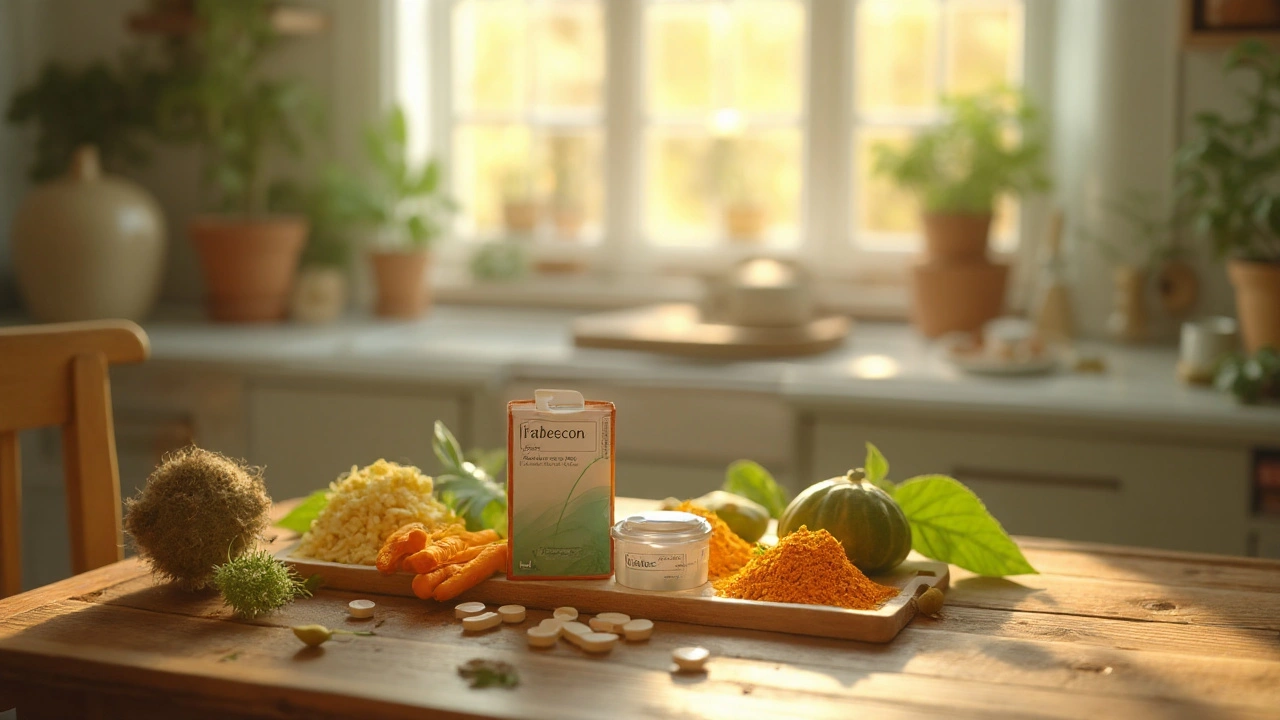Herbal Supplements and Remedies: Quick Guide
Herbs have been used for centuries to support health, and today they’re a big part of many people’s daily routine. Whether you’re looking for a natural boost for your joints, a calm mind, or a gentle way to manage digestion, the right plant can make a difference. This page pulls together the most useful herb‑related articles on Poached Rhino so you can find reliable info fast.
Popular Herbal Picks
We cover a range of herbs that show up a lot in searches. Tree of Heaven (Ailanthus altissima) is one example – it’s marketed as a supplement, but you’ll need to know the real benefits, possible side effects, and local safety rules before trying it. Lutein isn’t a herb, but many readers ask about plant‑based eye support, and we have a guide on how lutein from leafy greens can help protect vision.
Bistort is another plant gaining attention for digestion and immune support. Our article breaks down how it works and what dosage looks like. If you want something for bacterial infections without a prescription, we also explain herbal and probiotic alternatives to drugs like Flagyl, covering garlic, oregano oil, and specific probiotic strains.
These posts give you the facts you need – dosing, safety, and where to buy a quality product. They also point out red flags such as contamination, inaccurate labeling, or interactions with prescription meds.
Safety Tips for Herbal Use
Even natural stuff can cause problems if you ignore a few basics. Always check the source: reputable vendors will provide batch testing info and clear ingredient lists. Look for third‑party certifications or lab results, especially if the herb is marketed for a specific health claim.
Talk to your doctor or pharmacist before mixing herbs with prescription meds. Some herbs, like St. John’s wort, can affect how drugs are processed in the liver, leading to lower effectiveness or higher side‑effects. Start with a low dose and see how you feel before moving up.
Watch for allergic reactions. Skin rash, stomach upset, or breathing issues can signal an allergy, and you’ll want to stop the herb right away. Keep a short journal of what you take, the amount, and any symptoms – it makes spotting patterns easier.
Finally, remember that “herbal” doesn’t mean “cure‑all.” The best results come from using plants as part of a broader health plan that includes good diet, exercise, and proper medical care. Our tag page links to articles that blend herbal advice with those lifestyle basics.
Choosing the right herb starts with the health goal you have. If you need a calm mind, herbs like valerian root or chamomile are worth looking at. For joint comfort, try turmeric or ginger, both of which have anti‑inflammatory properties. When you read our articles, you’ll see a quick “Who it helps” section that matches the herb to common issues, making it easier to pick.
Buying herbs online can be a minefield, but a few simple steps keep you safe. First, verify the pharmacy or supplement store – look for a licence number or a “Verified Seller” badge. Second, compare prices; if a deal looks too good to be true, it probably is. Third, read customer reviews that mention product purity and shipping reliability. Our guides on buying generic meds online also cover these checks, so you can apply the same rules to herbal products.
Once you have a herb, think about how to add it to your daily routine. Capsules are convenient, but teas and tinctures can be gentler on the stomach. Mixing a pinch of dried herb into a smoothie, or brewing a tea before bed, often works better than gulping a large pill. Keep consistency – most herbs need a few weeks of regular use to show benefits.
Browse the list below to jump straight to the herb you’re curious about. Each article is written by health‑savvy writers and updated for 2025, so you get current safety guidelines and price tips for buying online. Happy exploring, and stay safe!

Diabecon: Natural Herbal Supplement for Diabetes Control and Support
A deep dive into Diabecon—what it is, how it works, and whether it's effective for managing diabetes. Tips, risks, and expert advice included.
